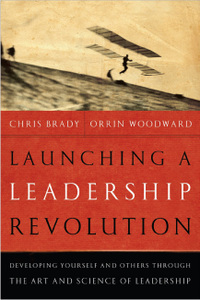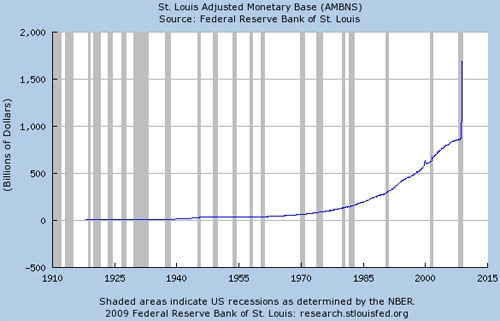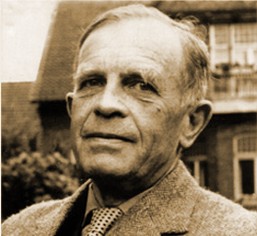Here is an excellent article from a 19th century historian, William Lecky. I have been reading some of the old late 1800’s literature on character and this is a classic that I had to share with the hungry leaders on my blog. Tact is the art of saying the right thing at the right time to the right person with the goal of steering his thoughts and behaviors to a productive result while strengthening the bond of trust. Leaders without tact are more likely to injure their teams than serve them. I believe that in order to move from a Level 2 Performer to a Level 3 Leader, as Chris Brady and I teach in Launching a Leadership Revolution, it’s imperative to develop the art of tact. The more tact you have the more you can guide your leadership craft without running it aground on the shallow waters of hurt feelings and damaged egos. There is an art and science to all businesses. Even after developing the skills to perform, the magic is in developing the communication skills to help others make the adjustment to perform. For example, if you remove a fly from a teammates forehead with an axe, you are exhibiting a lack of tact. Read the article and ponder how you can improve on the art side of your business. God Bless, Orrin Woodward
Strength of will and tact are not necessarily, perhaps not generally, conjoined, and often the first seems somewhat to impair the second. The strong passion, the intense conviction, the commanding and imperious nature overriding obstacles and defying opposition, that often goes with a will of abnormal strength, does not naturally harmonize with the reticence of expression, the delicacy of touch and management that characterize a man who possesses in a high degree the gift of tact. There are circumstances and times when each of these two things is more important than the other, and the success of each man will mainly depend upon the suitability of his peculiar gift to the work he has to do.
‘The daring pilot in extremity’ is often by no means the best navigator in a quiet sea; and men who have shown themselves supremely great in moments of crisis and appalling danger, who have built up mighty nations, subdued savage tribes, guided the bark of the State with skill and courage amid the storms of revolution or civil war, and written their names in indelible letters on the page of history, have sometimes proved far less successful than men of inferior powers in the art of managing assemblies, satisfying rival interests or assuaging by judicious compromise old hatreds and prejudices. We have had at least one conspicuous example of the difference of these two types in our own day in the life of the great founder of German Unity.
Sometimes, however, men of great strength of will and purpose possess also in a high degree the gift of tact; and when this is combined with soundness of judgment it usually leads to a success in life out of all proportion to their purely intellectual qualities. In nearly all administrative posts, in all the many fields of labour where the task of man is to govern, manage, or influence others, to adjust or harmonize antagonisms of race or interests or prejudices, to carry through difficult business without friction and by skillful co-operation, this combination of gifts is supremely valuable. It is much more valuable than brilliancy, eloquence, or originality. I remember the comment of a good judge of men on the administration of a great governor who was pre-eminently remarkable for this combination. ‘ He always seemed to gain his point, yet he never appeared to be in antagonism with anyone.’ The steady pressure of a firm and consistent will was scarcely felt when it was accompanied by the ready recognition of everything that was good in the argument of another, and by a charm of manner and of temper which seldom failed to disarm opposition and win personal affection.
The combination of qualities which, though not absolutely incompatible, are very usually disconnected, is the secret of many successful lives. Thus, to take one of the most homely, but one of the most useful and most pleasing of all qualities—good-nature—it will too often be found that when it is the marked and leading feature of a character it is accompanied by some want of firmness, energy, and judgment. Sometimes, however, this is not the case, and there are then few greater elements of success. It is curious to observe the subtle, magnetic sympathy by which men feel whether their neighbor is a harsh or a kind judge of others, and how generally those who judge harshly are themselves harshly judged, while those who judge others rather by their merits than by their defects, and perhaps a little above their merits, win popularity.
No one, indeed, can fail to notice the effect of good nature in conciliating opposition, securing attachment, smoothing the various paths of life, and, it must be added, concealing grave faults. Laxities of conduct that might veil blast the reputation of a man or a woman are constantly forgotten, or at least forgiven, in those who lead a life of tactful good-nature, and in the eyes of the world this quality is more valued than others of far higher and more solid worth.
Though in its higher degrees it is essentially a natural gift, and is sometimes conspicuous in perfectly uneducated men, it may be largely cultivated and improved; and in this respect the education of good society is especially valuable. Such an education, whatever else it may do, at least removes many jarring notes from the rhythm of life. It tends to correct faults of manner, demeanor, or pronunciation which tell against men to a degree altogether disproportioned to their real importance, and on which, it is hardly too much to say, the casual judgments of the world are mainly formed; and it also fosters moral qualities which are essentially of the nature of tact.
We can hardly have a better picture of a really tactful man than in some sentences taken from the admirable pages in which Cardinal Newman has painted the character of the perfect gentleman.
‘ It is almost a definition of a gentleman to say he is one who never inflicts pain. … He carefully avoids whatever may cause a jar or a jolt in the minds of those with whom he is cast—all clashing of opinion or collision of feeling, all restraint or suspicion or gloom or resentment; his great concern being to make everyone at ease and at home. He has his eyes on all his company; he is tender towards the bashful, gentle towards the distant, and merciful towards the absurd; he can recollect to whom he is speaking; he guards against unreasonable allusions or topics that may irritate; he is seldom prominent in conversation, and never wearisome. He makes light of favors while he does them, and seems to be receiving when he is conferring. He never speaks of himself except when compelled, never defends himself by a mere retort; he has no ears for slander or gossip, is scrupulous in imputing motives to those who interfere with him, and interprets everything for the best. He is never mean or little in his disputes, never takes an unfair advantage, never mistakes personalities or sharp sayings for arguments, or insinuates evil which he dare not say out. . . . He has too much good sense to be affronted at insult; he is too busy to remember injuries, and too indolent to bear malice. … If he engages in controversy of any kind his disciplined intellect preserves him from the blundering discourtesy of better though less educated minds, who, like blunt weapons, tear and hack instead of cutting clean. … He may be right or wrong in his opinion, but he is too clear-headed to be unjust; he is as simple as he is forcible, and as brief as he is decisive. Nowhere shall we find greater candor, consideration, indulgence. He throws himself into the minds of his opponents, he accounts for their mistakes. He knows the weakness of human nature as well as its strength, its province, and its limits.’
 In our Wall Street Journal #1 best selling book Launching a Leadership Revolution, Chris Brady and I talk about the 3H principles of every leader. Hungry, Honeable, and Honorable each plays a part in the developing leader. If you desire to lead in your home, community, workplace, church or club, these 3 characteristics are essential for your success. Anyone can improve their leadership by studying these attributes and applying them to their leadership journey. Each of these is explained in full in our book, but let’s elaborate a little on them here.
In our Wall Street Journal #1 best selling book Launching a Leadership Revolution, Chris Brady and I talk about the 3H principles of every leader. Hungry, Honeable, and Honorable each plays a part in the developing leader. If you desire to lead in your home, community, workplace, church or club, these 3 characteristics are essential for your success. Anyone can improve their leadership by studying these attributes and applying them to their leadership journey. Each of these is explained in full in our book, but let’s elaborate a little on them here.








 The pool analogy is an excellent example of the power of culture to create a winning organization, when the leader understands the effect of the culture current. Proper culture carries people in the winning direction and new people quickly adopt the principles and philosophies of the community. Watch the video and determine how you can have the culture current work for you and not against you. God Bless,
The pool analogy is an excellent example of the power of culture to create a winning organization, when the leader understands the effect of the culture current. Proper culture carries people in the winning direction and new people quickly adopt the principles and philosophies of the community. Watch the video and determine how you can have the culture current work for you and not against you. God Bless, 